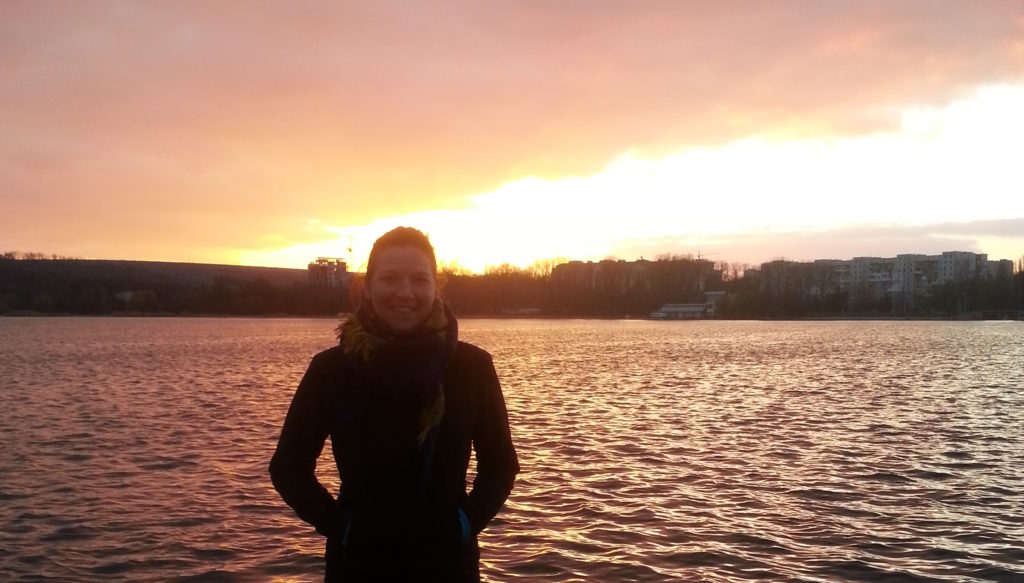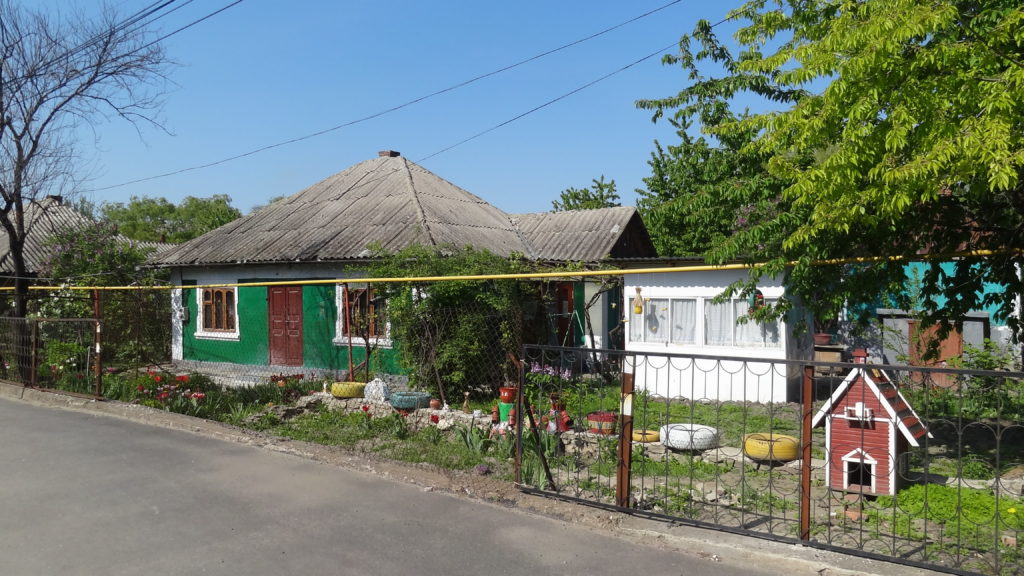
Every time I met locals or even other tourists in Moldova, they would ask me why I decided to come to the country. When I told them it was actually my second time, they were quite confused! They couldn’t understand the appeal in coming once to the country, so for me to keep coming back was definitely a strange idea!
There are many things I really liked in Moldova. And a few things I didn’t quite understand. In no particular order, here are the things that either surprised me or had an impact on me.
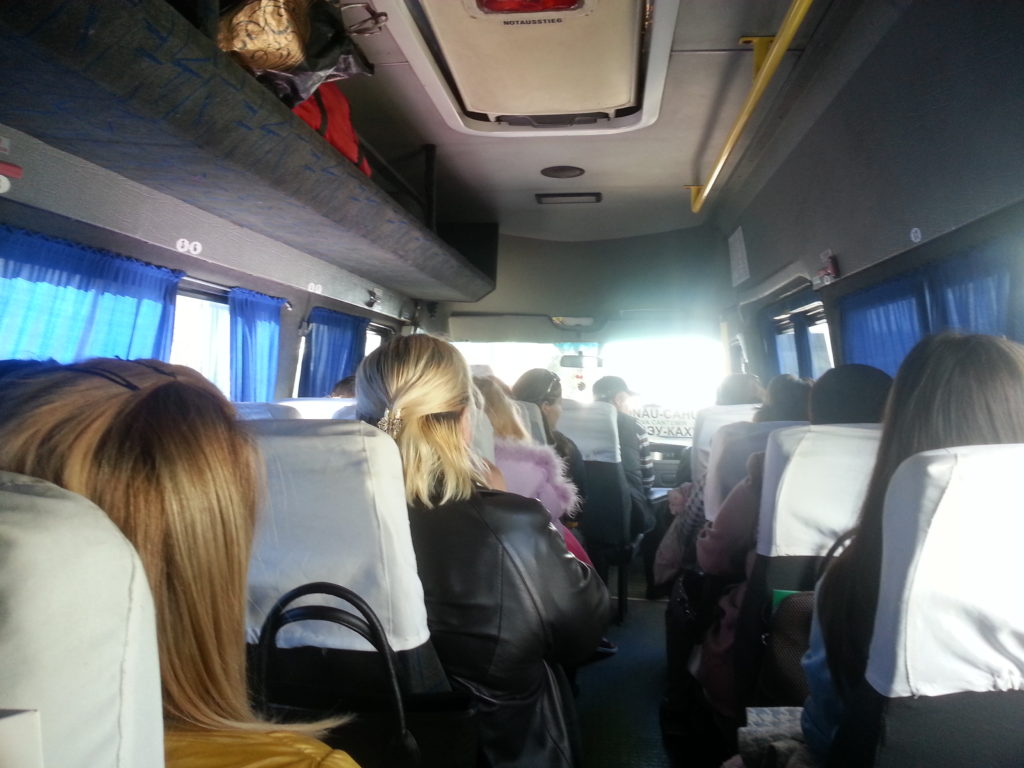
Minibusses (Rutiere)
The minibusses, or rutiere, are the way to get around in Moldova. It takes a while to understand how they work and their different routes. They all have the destination written on a cardboard sign in the front. As they usually do the same routes back and forth, it will tell you the route but not necessarily the direction. The signs are usually written in both Romanian and Russian. The minibusses tend to be quite full, and it’s always interesting to see how many people can fit in.
Even though most people in Moldova seem pretty relaxed, when they get on the minibus, it’s different. As soon as the minibus arrives, you jump in, closing the door very quickly behind you. You are barely in that the driver will speed off. In order to pay your fare, you hand the money to the driver and quickly find a seat or grab something to hold on to. The driver will use one of his free hands (if he’s not on the phone) to go through the change on the dashboard and hand it to the person sitting behind him. The money will then travel back, hand to hand, to you or the person who just got on.
When you are ready to get off, you go stand next to the driver to tell him where you’d want to be dropped off, usually on the side of the road. The minibus will slow down and stop, you jump off, shut the door and off the minibus keeps going. You can get in at stations or bus stops, which are not always very well sign posted, and if they are, sometimes, they are no longer in use. The other option is to signal to the driver when he goes by and he’ll slow down or stop if there’s room for one more in the minibus.
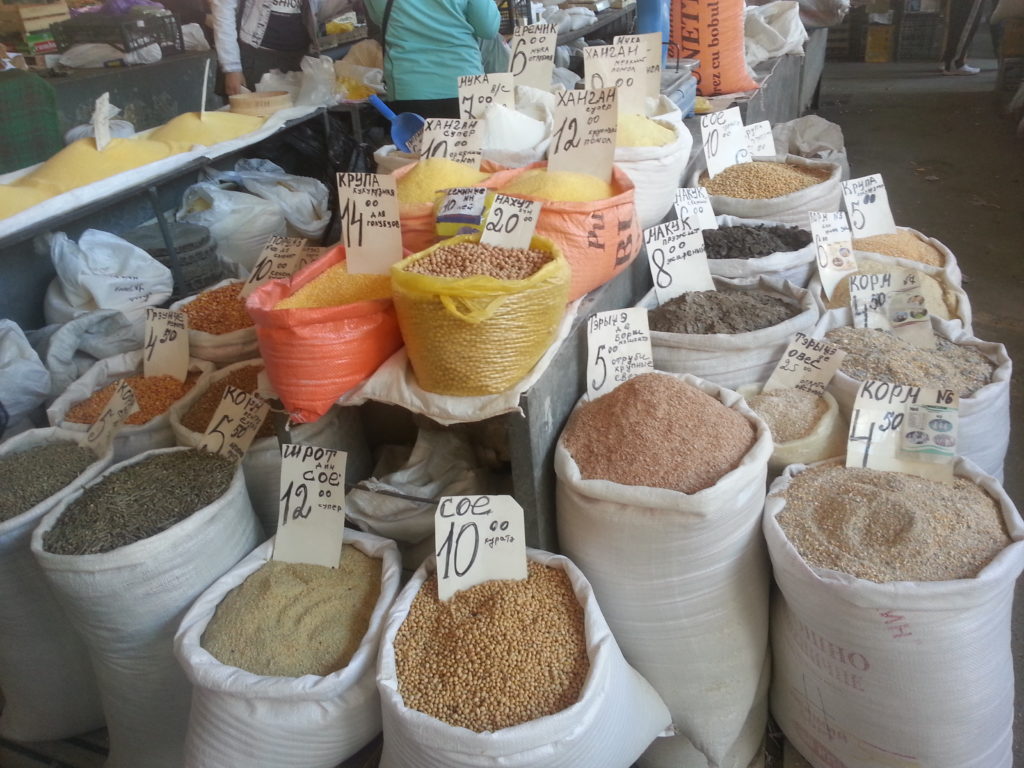
Food and wine
One of the things I did enjoy in Moldova was some of the food and wine. Locals all grow they own vines and make their own wine. The home made wine tends to be very sweet, as the grapes take in a lot of sun during the summer and also because the wine usually is bottled and enjoyed right away, without allowing it to age. They usually reuse some old plastic bottles, making this the unofficial Moldovan coke, easily bought in any of the markets. Used plastic bottles are also filled with milk, oil, wine, anything liquid and that can be bought at the market.
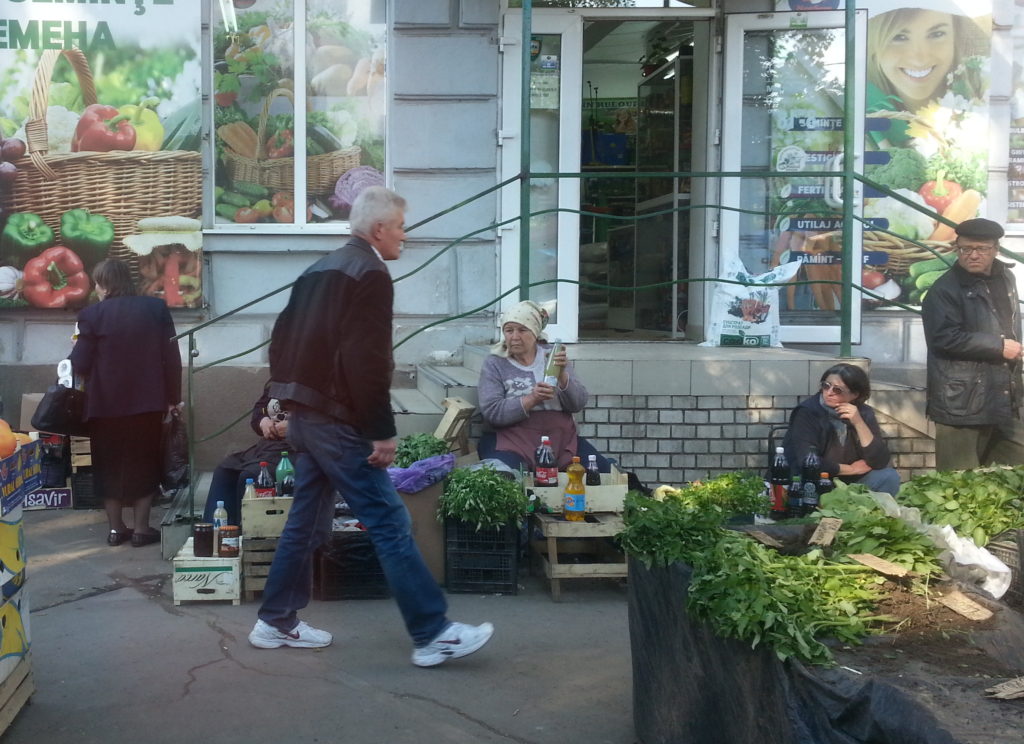
Moldovan food includes a lot of meat, and of course being vegetarian did mean that my options to eat out were a lot more limited, but thanks to my stay at Constantin’s hostel, I had learned what was vegetarian and what was not! Mamaliga (polenta served with sour cream or meat) and Placinta (pastry filled with everything from meat, potatoes, apples, cherries, etc) are very common everywhere in Moldova. While I did like Placinta (even though the name reminds me of the word placenta, making this a bit weird) one of the things I did not enjoy as much was the fermented veggies. Salads made of fermented veggies are also quite common, and even though I do enjoy eating veggies, I’m not a big fan of any fermented food. I did, however, enjoy what is called vinaigrette, a salad made with potatoes, carrots, peas, beetroot and pickles.
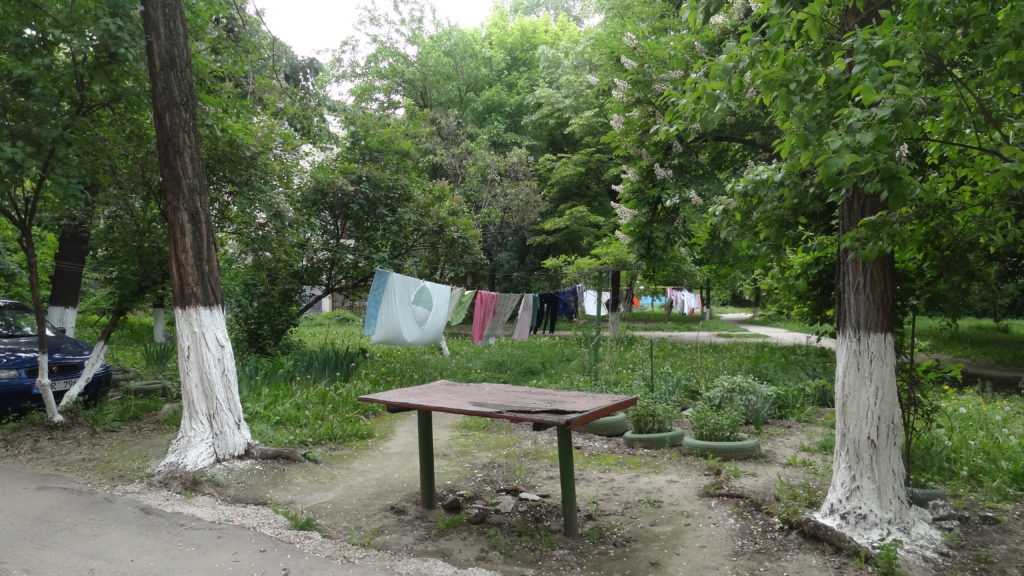
Basic level of life
During my stay in Moldova, I visited multiple cities and villages, which allowed me to notice first hand the level of poverty experienced by a lot of people. It’s very common in a lot of villages to have unpaved streets and water wells everywhere. Most homes also still have backhouses outside the house. And chicken, goose, or other farm animals hanging out in the yards. It felt like going back in time.
When I was walking in some traditional neighborhoods, it crossed my mind that I could have easily been in Nepal. The life conditions were really basic. I find it hard to understand how people in Europe can still live in such precarious situations. And with an average monthly salary of about 150 Euro per month, there’s not much hope in anybody managing to save enough money to improve said situations. I do enjoy going out of the big cities and tourist areas as I always find it eye opening.
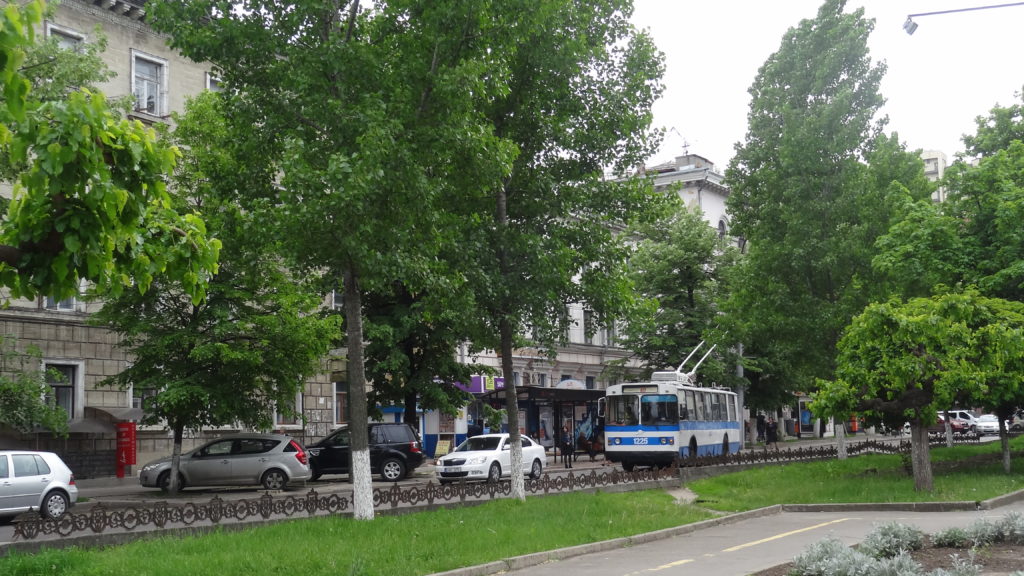
Supermarket and lockers
Most people in Moldova buy their food at the markets, but there are some traditional supermarkets in some larger cities. Most supermarkets have lockers at the entrance for people to leave their bags in while shopping, and to prevent shoplifting. When I was staying in Rosu, I went to Fourchette, the supermarket in Cahul. And because I had my backpack with me, I decided to use one of the lockers. I didn’t think anything more to this until it was time to leave. One of the straps of my bag was left sticking out of my locker, and when people using the lower lockers closed it, the strap was stuck. I waited for a bit knowing that the person would be in the store but because it was taking too long, I decided to ask the clerk if I could have scissors (gesturing to my bag and then making scissors with my fingers of course). Gladly, he thought of pulling on the door to try to widen the gap and we were able to slip the strap out. My bag was finally free!
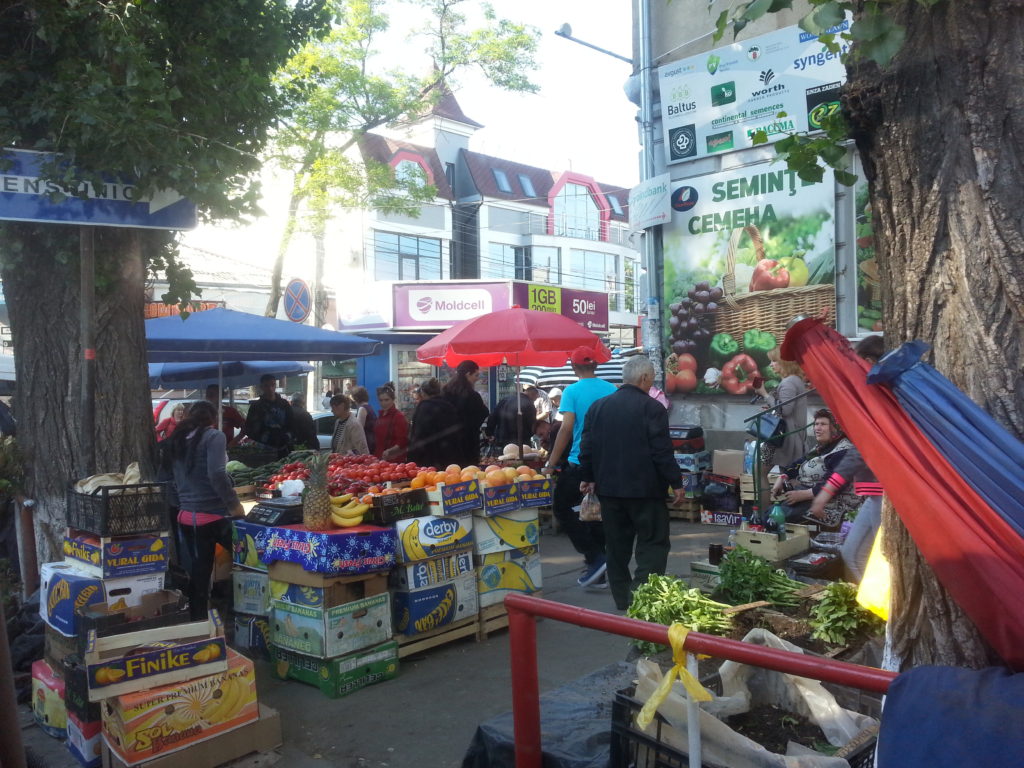
Managing to communicate and sometimes not being able to
Sometimes communication is easy with gestures and all, even though there are no common languages. And sometimes it’s a lot harder. When I caught the bus back to Rosu one day, it was so full people were literally pushing to fit more people in. I decided to move to a very tiny empty spot behind the driver’s seat. I made the mistake of stepping on the place where people leave the money and was told off by the driver. And of course, I had no idea what he was saying.
I was trying to be helpful and let more person in, but instead, I got everybody’s attention and I felt very awkward. I wanted to apologize for stepping somewhere I shouldn’t have, but I couldn’t remember the word. I felt very self-conscious and foreign, sitting right behind the driver, facing everybody else, and not understanding a word that was spoken around me. Most of the times, I am okay with situations like this, but some days it makes me very uncomfortable. Not speaking the language definitely makes it more challenging to connect with people even for the most basic things like apologizing or saying thanks.
Sometimes, though, you decide to buy oranges and apples at the market. You point and smile and at the end of the transaction, after using a calculator to tell you how much it costs, the girl working at the market will say thank you in English and you’ll answer Mulțumesc. The conversation will stop there obviously because it’s as far as both your languages skills extend, but you will leave feeling this was a good human interaction. I find that whether it’s a good experience or a challenging one depends on a lot on the situation and the mood I am in that day.
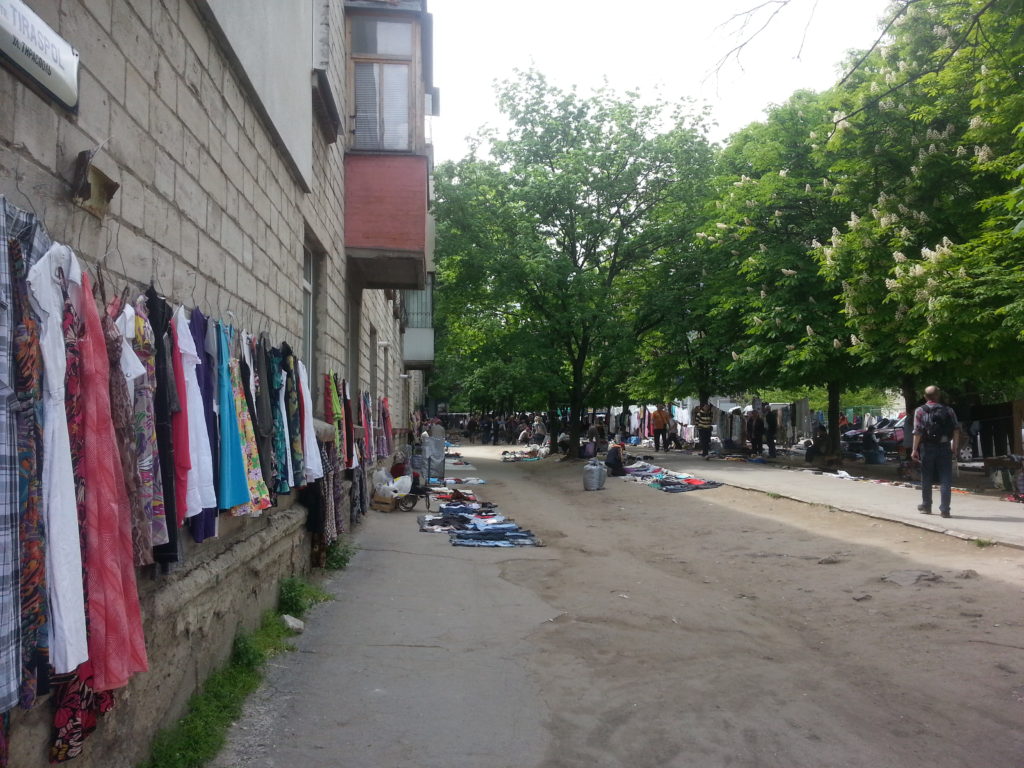
Shopping in Chisinau
Shopping in Moldova is also quite different from Canada. There are obviously ”normal” shops, but if you shop for clothes in the official market it feels a little different. I was looking to buy a dress (shocking right?) and as I was walking through the market, I saw one I wanted to try on. When I told the salesperson, she had me come in her little ”shop”. The shops are about 3 meters by 1.5m. They vary greatly in style and sizes, but they clearly have no room for a dressing room. So when I gestured to the lady I wasn’t sure the dress would fit, she pulled a curtain (which looked more like a bed sheet) and held it between me and the aisle so I could change here and there. The dress was unfortunately too small. She told me something but I clearly couldn’t understand so she asked around if someone spoke English. Another girl came in and the first one left to have a look at another shop. Leaving me there with a dress that didn’t zip. It was a bit funny. A few long minutes later, she came back with the dress in a different size and colour. It didn’t work either, but it made for an interesting experience!
Some people selling shoes also will have their little shops, with shoes laid out on a table. And if you want to try them on, they will have you stand on a piece of cardboard to make sure you keep the shoes clean.
Every year, the unofficial markets get cleared off, but people always come back. Whereas the official markets are more organized, the unofficial ones are mostly people selling anything from used clothing to tools and homemade wine or milk.
As usual in markets, you can find about anything you can imagine, including bras and underwear, but I didn’t try to figure out how one was supposed to try them on…
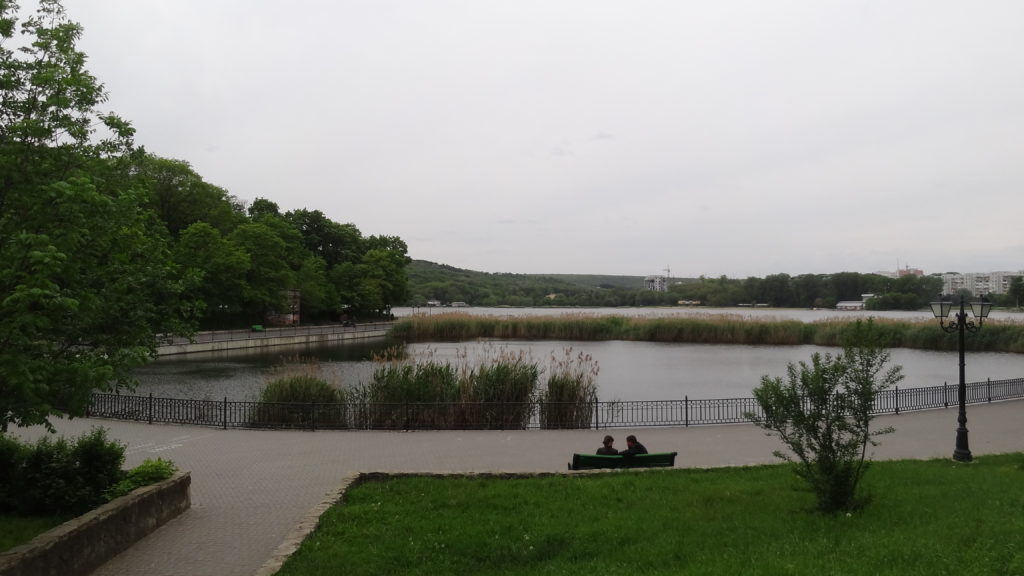
Challenges to overcome in Moldova
People always ask me why I picked Moldova and it’s always difficult to pinpoint why I like it so much. I like how lush and green it is and the many great encounters I’ve had with locals. I find that when you take the time to listen to people and try to communicate with gestures and smiles, it (almost) always works. And most people are nice, especially if you meet them with a genuine interest.
While there are still a lot of challenges for Moldovans to overcome, starting with poverty, and corruption, I truly believe that Moldova has great tourism potential. However if I’m being totally honest, the fact that it is not quite developed for tourists yet is one of my favourite things about the country. That, and the curiosity and friendliness of locals.
